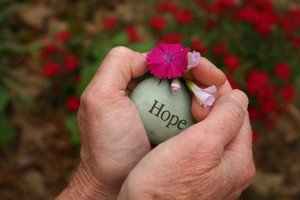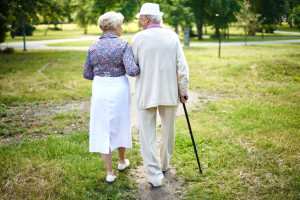
Frail COPD Rehab Patients Hold Onto Hope
“I can’t catch my breath, and you want me to exercise?” wheezed the 72 yr. old patient, incredulously. The point of her consternation stemmed from her lung doctor’s action plan for her COPD. Yes, her doctor wanted her in rehab, doing exercises.
Before you judge the doctor’s prescription for a modicum of exercise too harshly, let’s take a look at a recent study. The research, involving 816 patients with stable COPD, all at least 70 yrs. old, was accomplished by King’s College, London and Royal Brompton & Harefield NHS Foundation Trust.
The researchers engaged in the study of frailty in these patients. They wanted to discern whether the condition of frailty affected the completion or outcome of their 8 week rehabilitation program.
The Medical Condition of Frailty
You have probably used the term frail without understanding that “frailty” itself can be a medical term describing a physical syndrome. Before we discuss the details of the research study, let us examine the word frailty as a term for a certain physical condition. According to the experts, “frailty is a common clinical syndrome in older adults that carries an increased risk for poor health outcomes.” These high risks are all ugly. They include:
- Serious slips and falls,
- Incident disability,
- Hospitalization,
- And mortality.
Indeed we would describe any person with such problems as “frail,” but does that mean they have the syndrome? Not necessarily. Let’s take a deeper look; this syndrome has some very obvious symptoms.
Scientists observed that the cyclical syndrome manifested itself in several ways:
- Older people with the syndrome exhibited a negative energy balance, hence the risk of falling.

COPD: A New Awareness
- Likewise the all exhibited sarcopenia, which means a loss of muscle tissue.
- Increasingly diminished strength.
- Decreased tolerance for exertion.
You will note that these 4 symptoms are in no way mutually exclusive to COPD or any chronic disease. They are, however often attached to the problems of people advancing in the “normal” course of aging.
Still, we need to understand that we can define frailty in deeper, more measureable terms. Experts have done this very thing, in zeroing in on frailty and aging:
- low grip strength,
- low energy,
- slowed waking speed,
- low physical activity,
- and/or unintentional weight loss.
Stastical Meaning of Syndrome Criteria
We can put meaningful, numerical statistics on these 5 criteria for the syndrome. Scientists decided that having one or two of these symptoms was not enough to qualify a patient or an older person as having “frailty.” In order to be diagnosed with frailty, they decided a person must meet 3 out of 5 of the above criteria.
Now that we understand the medical nuances behind the term, “frailty,” we can better comprehend the significance of the findings of the new Kings College research. The

Diagnosed COPD Patient must work hard to avoid frailty.
study was funded by the NIHR and the Medical Research Council.
If it looks very familiar, you might have seen it in the journal, Thorax, published by Matthew Maddocks, Samantha S C Kon, Jane L Canavan, Sarah E Jones, Claire M Nolan, Alex Labey, Michael I Polkey, William D-C Man, and entitled, Physical frailty and pulmonary rehabilitation in COPD: a prospective cohort study.
Results of the Study
The researchers discovered that 209 out of 816patients , all of whom were recruited from the Harefield Hospital Pulmonary Rehabilitation Program qualified as frail before the 8 week rehab program due mainly their condition.
However, amazingly, they also discovered that frail patients who completed the eight-week rehabilitation program –55% of the 209 scored– consistently scored and felt better when re-tested at the end of the program!
How They Were Tested
- Before and after the rehab program they were tested for measures of breathlessness.

Frailty can be improved with rehab and exercise.
- They were tested on specific exercise performance.
- They were examined for physical activity.
- They were evaluated for and health status.
- They were compared to non-frail participants in the same program.
Statistics After rehabilitation
Boom! 71 out of 115 previously frail patients no longer met the criteria for frailty. Obviously, in spite of their COPD, these patients were helped and strengthened by their rehabilitation activity.
Now we will explain why the title of this article includes the words “you and me.” The final conclusion of the researchers and the fine performance of the COPD patients has far reaching effects beyond COPD or any chronic illness.
Studies such as this one prove that “frailty increases your risk of becoming dependent on others.” One in every 10 people over 65 are affected by it.
Yes, frailty is linked to age-related decline, so we can all learn a lesson from COPD patients in rehabilitation. They are fighting the hastening of the frail state done by the disease itself. How much more fortunate are the over 65’s who do not have COPD! They can fight frailty also with healthy exercise and rehabilitation techniques. In this case, sick people are teaching healthy people an important lesson!



